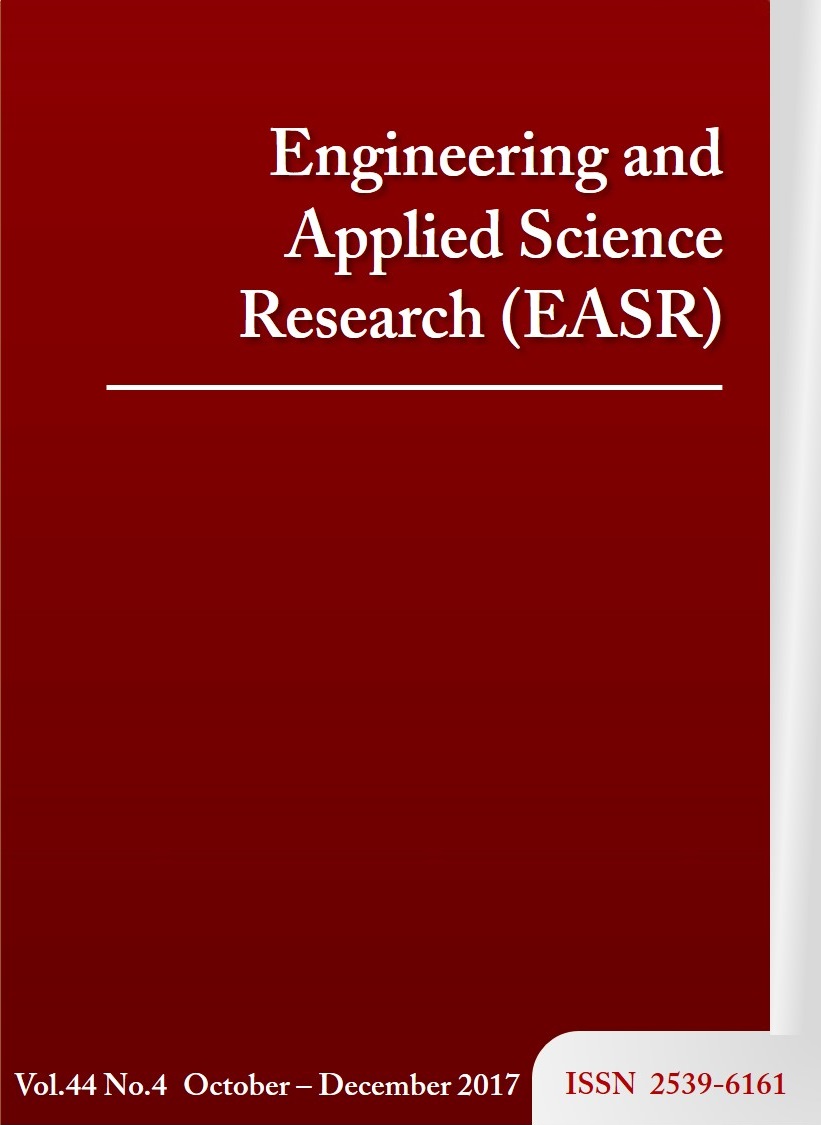Impact on fuel consumption reduction of introducing hybrid cars in Bangkok using probe information and mobile fuel measurement
Main Article Content
Abstract
Since a hybrid vehicle consumes less gasoline, especially in traffic congestion, it is expected to reduce fuel consumption from vehicles in a city like Bangkok. Thus, the reduction in fuel consumption after introducing hybrid car should be estimated to understand its impacts. However, fuel consumption is dependent on driving situations, which fluctuate locally and are unstable. Therefore, an estimation method using probe data reflecting local traffic conditions should be applied. In this study, a method to estimate fuel consumption of gasoline and hybrid vehicles was proposed based on probe information obtained from around 10,000 taxis and mobile fuel consumption measurement in actual test runs. To represent the local traffic situation, five different driving modes (stopping/idling, crawling, accelerating, cruising, and decelerating) were identified. Under the assumption that all probe vehicles be replaced by hybrids, fuel reduction impacts are clearly observed in congested traffic.
Article Details
This work is licensed under a Creative Commons Attribution-NonCommercial-NoDerivatives 4.0 International License.
References
[2] Chang XM, Chen BY, Li Q, Cui X, Tang L, Liu C. Estimating real-time traffic carbon dioxide emissions based on intelligent transportation system technologies. IEEE Trans Intell Transport Syst. 2013;14(1):469-79.
[3] Ropkins K, Quinn R, Beebe J, Li H, Daham B, Tate J, et al. Real-world comparison of probe vehicle emissions and fuel consumption using diesel and 5% biodiesel (B5) blend. Sci Total Environ. 2007; 376:276-84.
[4] Raykin L, Roorda MJ, MacLean HL. Impacts of driving patterns on tank-to-wheel energy use of plug-in hybrid electric vehicles. Transport Res Transport Environ 2012;17(3):243-50.
[5] Wang H, Zhang X, Ouyang M. Energy consumption of electric vehicles based on real-world driving patterns: a case study of Beijing. Appl Energ. 2015;157: 710-9.
[6] Pitanuwat S, Sripakagorn A. An investigation of fuel economy potential of hybrid vehicles under real-world driving conditions in Bangkok. Energ Procedia. 2015;79:1046-53.


